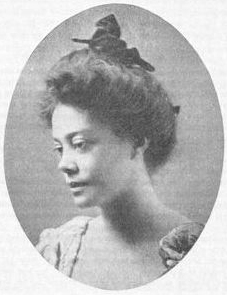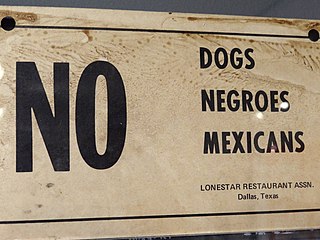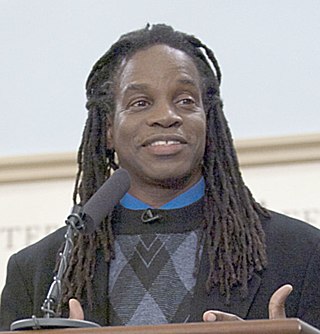Ewuare Xola Osayande is an American poet, political activist, author, and lecturer. He currently lives in Philadelphia, PA, US.
Ewuare Xola Osayande is an American poet, political activist, author, and lecturer. He currently lives in Philadelphia, PA, US.
Osayande is the founder of Talking Drum Communications, co-founder and director of POWER (People Organized Working to Eradicate Racism), and creator of Project ONUS: Redefining Black Manhood. He has written 16 books and given more than 500 lectures in locations ranging from prisons to Harvard University. He was the Anti-Oppression Coordinator with Mennonite Central Committee [1] from 2012 to 2016, as well as being the Chief Diversity Officer at the American Friends Service Committee. [2] [3]
Ewuare X. Osayande was born in Camden, New Jersey. He became a committed social justice activist and organizer while a student at Fairleigh Dickinson University. Following the 1990 fatal shooting of Phillip Pannell Jr., a 14-year-old African American shot by a white policeman in Teaneck, New Jersey, Osayande organized protests and raised awareness about racially motivated police brutality. [4] For more than a decade, he continued to analyze American culture and educate people of all races about the history and current reality of racism and other forms of oppression.
His work continues with POWER, an organization he co-founded with Jacqui Simmons. POWER runs workshops on racism, empowerment and politics. These programs are modeled upon the theories of anti-racist activist Wanda Lofton (1950-2002). [5]
Early in Osayande's career he met Gwendolyn Brooks, who read his poetry and encouraged him to continue writing, self-promote, and publish his works. As a result, Osayande founded Talking Drum Communications publishing company and wrote 14 books in 16 years. [4] Amiri Baraka wrote the introduction to Blood Luxury. [5]
Racism is discrimination and prejudice towards people based on their race or ethnicity. Racism can be present in social actions, practices, or political systems that support the expression of prejudice or aversion in discriminatory practices. The ideology underlying racist practices often assumes that humans can be subdivided into distinct groups that are different in their social behavior and innate capacities and that can be ranked as inferior or superior. Racist ideology can become manifest in many aspects of social life. Associated social actions may include nativism, xenophobia, otherness, segregation, hierarchical ranking, supremacism, and related social phenomena.
Triple oppression, also called double jeopardy, Jane Crow, or triple exploitation, is a theory developed by black socialists in the United States, such as Claudia Jones. The theory states that a connection exists between various types of oppression, specifically classism, racism, and sexism. It hypothesizes that all three types of oppression need to be overcome at once.

The Mennonite Central Committee (MCC) is a relief service, and peace agency representing fifteen Mennonite, Brethren in Christ and Amish bodies in North America. The U.S. headquarters are located in Akron, Pennsylvania; the Canadian headquarters is located in Winnipeg, Manitoba.

Patricia Hill Collins is an American academic specializing in race, class, and gender. She is a distinguished university professor of sociology emerita at the University of Maryland, College Park. She is also the former head of the Department of African-American Studies at the University of Cincinnati, and a past president of the American Sociological Association (ASA). Collins was the 100th president of the ASA and the first African-American woman to hold this position.

Black anarchism is a term applied to a group of people of African descent who identify with the principles of anarchism. These people include, but are not limited to, Ashanti Alston, Kuwasi Balagoon, Lorenzo Kom'boa Ervin, Greg Jackson, and Martin Sostre. Critics of the term suggest that it broadly eclipses important political differences between these multi-varied thinkers and incorrectly presents them as having a shared theory or movement. Black anarchism has had a major influence on the anarchist movement, black anarchists have a 100-year history in black-led anti-fascist and anti-racist history.
Campus Antiwar Network (CAN) is an American independent grassroots network of students opposing the occupation of Iraq and military recruiters in US schools. It was founded prior to the 2003 invasion of Iraq, and claims to be the largest campus-based antiwar organization in the United States.
Black feminism, also known as Afro-feminism chiefly outside the United States, is a branch of feminism that centers around black women.

Alice Dunbar Nelson was an American poet, journalist, and political activist. Among the first generation born free in the South after the Civil War, she was one of the prominent African Americans involved in the artistic flourishing of the Harlem Renaissance. Her first husband was the poet Paul Laurence Dunbar. After his death, she married physician Henry A. Callis; and, lastly, was married to Robert J. Nelson, a poet and civil rights activist. She achieved prominence as a poet, author of short stories and dramas, newspaper columnist, activist for women's rights, and editor of two anthologies.

Amiri Baraka, previously known as LeRoi Jones and Imamu Amear Baraka, was an American writer of poetry, drama, fiction, essays, and music criticism. He was the author of numerous books of poetry and taught at several universities, including the University at Buffalo and Stony Brook University. He received the PEN/Beyond Margins Award in 2008 for Tales of the Out and the Gone. Baraka's plays, poetry, and essays have been described by scholars as constituting defining texts for African-American culture.
Laissez-faire racism is closely related to color blindness and covert racism, and is theorised to encompass an ideology that blames minorities for their poorer economic situations, viewing it as the result of cultural inferiority. The term is used largely by scholars of whiteness studies, who argue that laissez-faire racism has tangible consequences even though few would openly claim to be, or even believe they are, laissez-faire racists.

Black-brown unity, variations include black-brown-unity[4][5] and black-brown-red unity,[6] is a racial-political ideology which initially developed among black scholars, writers, and activists who pushed for global activist associations between black people and brown people ,and Indigenous peoples of the Americas to unify against white supremacy, colonialism, capitalism, and, in some cases, European conceptualizations of masculinity, which were recognized as interrelated in maintaining white racial privilege and power over people of color globally.[7][8]

Clarence Lusane is an American author, activist, lecturer and freelance journalist. His most recent major work is his book The Black History of the White House.

Anti-racism encompasses a range of ideas and political actions which are meant to counter racial prejudice, systemic racism, and the oppression of specific racial groups. Anti-racism is usually structured around conscious efforts and deliberate actions which are intended to provide equal opportunities for all people on both an individual and a systemic level. As a philosophy, it can be engaged in by the acknowledgment of personal privileges, confronting acts as well as systems of racial discrimination and/or working to change personal racial biases. Major contemporary anti-racism efforts include the Black Lives Matter (BLM) movement and workplace anti-racism.

Sister Outsider: Essays and Speeches is a collection of essential essays and speeches written by Audre Lorde, a writer who focuses on the particulars of her identity: Black woman, lesbian, poet, activist, cancer survivor, mother, and feminist. This collection, now considered a classic volume of Lorde's most influential works of non-fiction prose, has had a groundbreaking impact in the development of contemporary feminist theories. In fifteen essays and speeches dating from 1976 to 1984, Lorde explores the complexities of intersectional identity, while explicitly drawing from her personal experiences of oppression to include sexism, heterosexism, racism, homophobia, classism, and ageism. The book examines a broad range of topics, including love, self-love, war, imperialism, police brutality, coalition building, violence against women, Black feminism, and movements towards equality that recognize and embrace differences as a vehicle for change. With meditative conscious reasoning, Lorde explores her misgivings for the widespread marginalization deeply-rooted in the United States' white patriarchal system, all the while, offering messages of hope. The essays in this landmark collection are extensively taught and have become a widespread area of academic analysis. Lorde's philosophical reasoning that recognizes oppressions as complex and interlocking designates her work as a significant contribution to critical social theory.
"Becoming Visible: The First Black Lesbian Conference" was held at The Women's Building in San Francisco, California, from October 17 to 19, 1980. It has been credited as the first conference for African-American lesbian women.

El Jones is a poet, journalist, professor and activist living in Halifax, Nova Scotia. She was Halifax's Poet Laureate from 2013 to 2015.
The Black Power Movement in Montreal in the 1960s was a period of rediscovering black identity through a process of invoking cultural, economic, and political thought amongst blacks. The eruption of political activism during Montreal's Quiet Revolution as well as the reformation of immigration policies which discriminated against non-white immigrants allowed black communities to publicly express and bring awareness to their struggles with racism. The movement was an integral component of the emerging global challenges to imperialism during the 1960s, stemming from various movements including Garveyism, pan-Africanism, the Harlem Renaissance, Rastafari, and others. Montreal's Black Power movement culminated in the aftermath of the Sir George Williams Affair—a student occupation that resulted in an estimated $2 million worth of damages and 97 arrests—which raised concerns of racism worldwide.
Feminism and racism are highly intertwined concepts in intersectional theory, focusing on the ways in which women of color in the Western World experience both sexism and racism.

Black Mennonites are people who are both Mennonite and Black. Black Mennonites live in Africa, the United States, Canada, and elsewhere. Black Mennonite communities have existed in the United States and Canada since the late 1800s. Ethiopia and the Democratic Republic of the Congo are home to the second and fourth largest populations of Mennonites in the world. Tanzania, Zimbabwe, Kenya, and Angola also have some of the larger populations of Mennonites in the world. Glen Alexander Guyton, the first African-American leader of the Mennonite Church USA, has stated that "The typical Mennonite is an African woman", due to Mennonite missionary outreach in Africa, and that African Mennonites "are now sending missionaries to Europe and the United States." While Mennonites have historically been mostly white people of Central or Eastern European descent, with population centers in North America and Europe, Black Mennonites now outnumber white Mennonites globally. African Mennonite churches have had a larger number of members than North American Mennonite churches since 2006.